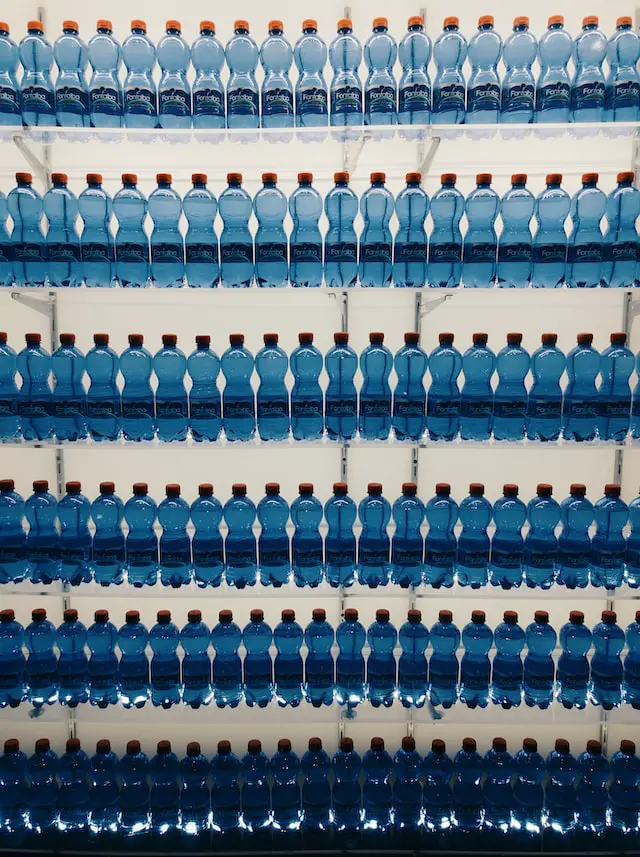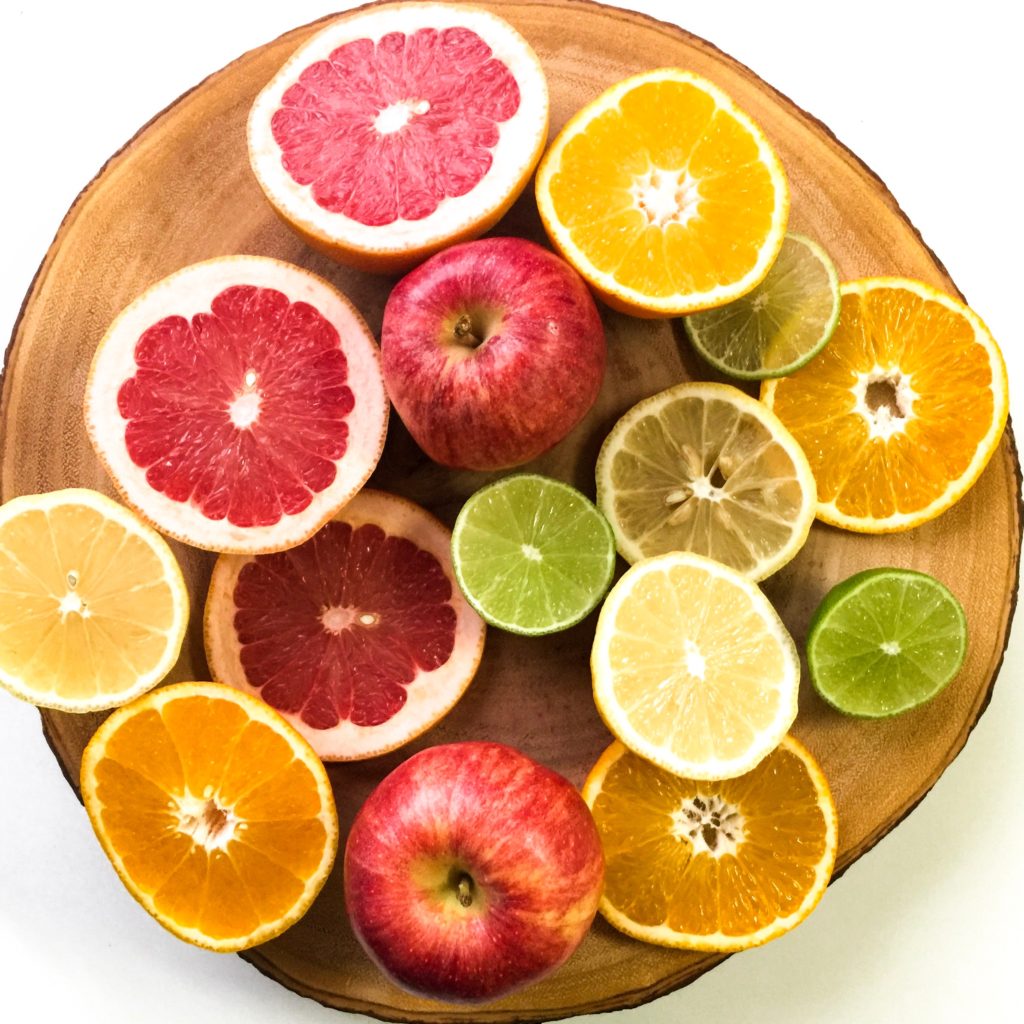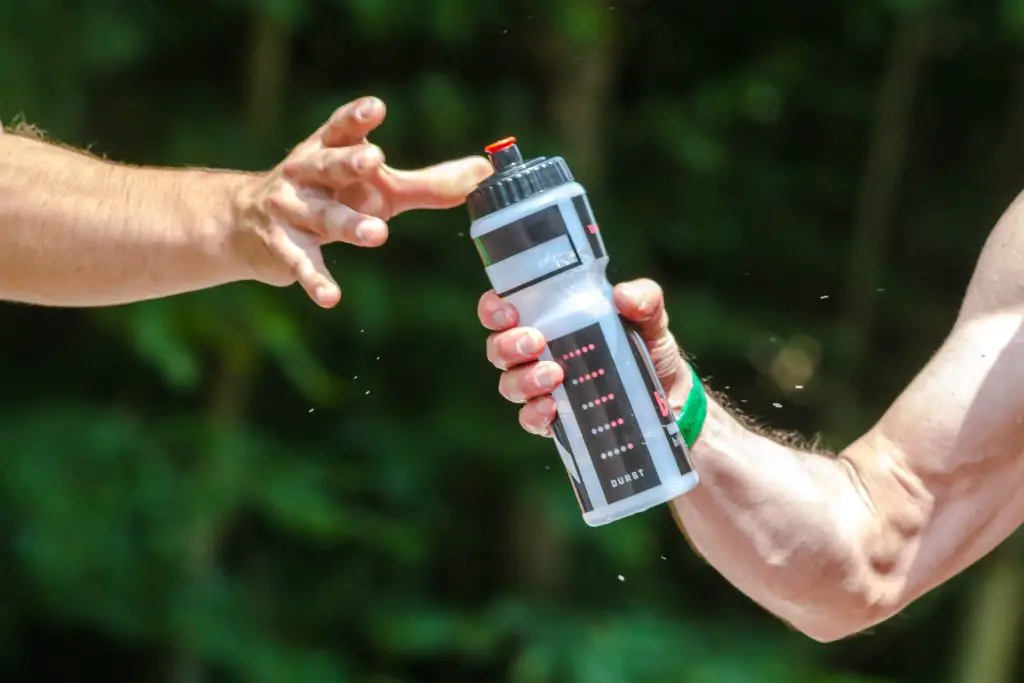A grocery store can dedicate an entire aisle to beverages. This variety alone makes choosing a drink difficult, not to mention sorting through the bolded labels and advertisements boasting of different hydration benefits. With dehydration significantly decreasing both cognitive and physical abilities, effective treatment of this condition should be a priority. So, what is the best drink for dehydration?
Lemon water is the best drink for dehydration because it replenishes electrolytes as well as lost liquids from sweat. Lemon speeds up the body’s absorption of the liquid as well, which is important for combating dehydration. Sports drinks like Gatorade, Powerade, Body Armor, and others are also good for dehydration, but can have a high sugar content that should be avoided.
Water will effectively treat a mild case of dehydration. Thirst indicates early dehydration and individuals should drink water when thirsty. Avoiding dehydration altogether remains the best option and individuals should drink unsweetened fluids such as water, milk, plant-based milk and 100% fruit juice consistently throughout the day.
Dehydration that occurs through excessive sweating, vomiting or diarrhea may necessitate drinking fluids with electrolytes and carbohydrate to replace lost nutrients. Good examples include sports drinks, Pedialyte, and oral rehydration solutions.
Continue reading to gain a better understanding of causes, prevention, and successful treatment of dehydration. Also, learn what makes a type of fluid a good choice for effective hydration.

What is Dehydration?
An insufficient amount of water inside the body results in dehydration. Water accounts for an average of 60% of a human’s body weight and plays a key role in the proper functioning of body systems and overall health. Some of the functions of water in the body include:
- Removing waste
- Temperature regulation
- Protecting the spinal cord and brain
- Lubricating and cushioning joints
A person suffering from even 1.5% dehydration will experience negative consequences. The following list describes some of the effects seen by someone with moderate to severe dehydration.
Moderate
- Thirst
- Dry mouth
- Dark urine color
- Lack of urination
- Muscle cramping
- Headache
- Lethargy
- Dry skin
Severe
- More significant moderate symptoms
- Dizziness
- Confusion
- Fast heart beat
- Rapid breathing
- Irritable
- Insomnia
- Fatigue
- Sunken eyes
- Fainting
Dehydration is a serious condition and should not be ignored. Continued dehydration without adequate treatment can result in a heat stroke, kidney issues, coma and death.
Heat stroke
- A temperature of 103F
- Muscle spasms
- Red, hot, dry skin
- Nausea
- Rapid pulse
- Seizures
- Lack of sweating
- Slurred speech and altered mental state
- Dizziness
- Fainting, loss of consciousness
- Hallucinations
What causes dehydration?
Dehydration can occur from a variety of conditions and situations. Excessive loss of fluid or inadequate intake of fluid will result in dehydration. The following list numbers some of the reasons for a fluid imbalance.
- Certain medications and diuretics
- Vomiting
- Diarrhea
- Fever
- Excessive sweating
- Too busy to drink
- Ignoring thirst
- Oral pain that deters individuals from drinking

Does Lemon Water Cure Dehydration?
Lemon water can help to prevent dehydration and it provides potassium which is an important electrolyte which is vital to essential body functions. Lemon water can also boost absorption of fluids. It can be beneficial to drink lemon water to help cure dehydration, but depending on the severity of dehydration, lemon water alone may not be enough as more electrolytes such as sodium and calcium may be needed.
How to Prevent Dehydration
An insufficient amount of fluid in the body results in dehydration, so consistently drinking fluids throughout the day is the best way to prevent dehydration. How much fluid should a person drink? Sadly, no simple target number works for everyone. Not only do needs change per person according to sex, age, genetics, etc., but will also adapt each day to different circumstances and actions.
Rather than focus on a specific amount, individuals can rely on urine color. A pale straw like yellow indicates adequate hydration, while darker yellows show a need for more fluids. Try to drink fluids prior to feeling thirsty because thirst already indicates dehydration.
Any physical activity, especially in humid or hot conditions, increases risk of dehydration due to increased fluid needs. Experts recommend drinking 16-20 ounces in the 1-2 hours before and 6-12 ounces every 15 minutes during exercise per tolerance. After a workout, individuals should look to replace every pound of fluid lost with 16-24 ounces of water or other appropriate beverage.
If exercise is longer than 1 hour or intense and causes severe sweating and fluid loss, a sports drink or additional electrolytes and carbohydrates may be necessary to prevent dehydration. Gatorade, Powerade, Body Armor, and other sports drinks can be good choices to help you stay hydrated. Do not get the sugar-free sports drink versions if you are sweating heavily, your body needs the sugar for replenishing energy. Stay away from energy drinks with added caffeine.
How to Treat Dehydration
Drinking water should be the first step in treating dehydration. Individuals may also find it helpful to move to a cooler or shaded area in hot environments. An oral rehydration solution does well for those suffering from dehydration due to a loss of fluid and electrolytes such as vomiting and diarrhea. Sports drinks also provide carbohydrate and electrolytes for effective rehydration due to excessive sweating.
Generally, improvements should occur within 5-10 minutes of fluid ingestion. For more severe cases, especially with signs of heatstroke, emergency care is advised. Emergency personnel can deliver salts and fluids intravenously for rapid treatment.

What drinks are a good hydration option?
Water is the gold standard or most effective hydration choice. Water will prevent and treat dehydration. Unsweetened beverages such as milk, plant-based milks, some 100% fruit juice and herbal teas make good hydration options as well. Lemon or cucumber water may boost fluid absorption and provide an appealing addition to plain water.
However, some instances may call for other choices. Diarrhea and vomiting not only cause a loss of fluid, but electrolytes as well. For this reason, oral rehydration solutions or Pedialyte may work better when a person experiences these conditions. A person with diarrhea or vomiting should avoid fruit juice, soda and artificially sweetened beverages as these can worsen symptoms.
Sports drinks are generally unnecessary for physical activity lasting less than one hour. These beverages contain higher amounts of sugar, which can contribute to an unhealthy sugar intake. Yet, in cases where physical activity lasts longer than one hour, an individual may benefit from the additional carbohydrate and electrolytes in order to replenish lost nutrients and stabilize energy.
For more information on Sports Drinks, read my article Should Football Players Drink Gatorade?
After a workout, individuals will want to ensure proper hydration. Poor intake of fluid will negatively affect recovery and later performance. While water effectively restores lost fluid, athletes can also include milk, chocolate milk or smoothies to help replenish carbohydrates and protein. Chocolate milk is a favorite because it provides fluid for rehydration, carbohydrates for refueling, and protein for rebuilding muscle.
Sugar sweetened beverages contribute to excess calories and sugar. Higher intake of calories and sugar increase the risk of energy crashes, unwanted weight gain, cavities and chronic disease. Due to these negative health outcomes, individuals should limit drinks such as soda, energy drinks, fruit drinks and sports drinks to special occasions.
Alcohol and coffee act as diuretics in large quantities. As such, these choices don’t make the best hydration options. Of course, teenagers should avoid alcohol all together due to its harmful effects on health. Coffee can assist with hydration in small quantities, but overall makes another poor hydration choice in comparison to other unsweetened beverages.
For more information on alcohol, read my article Do Basketball Players Drink Alcohol? A Dietitian’s Advice
Tips to Increase Fluid Intake and Prevent Dehydration
Life gets busy and sometimes drinking water does not happen as often as it should. However, staying adequately hydrated remains one of the most important factors to feeling energized and functioning well.
A few tips can make meeting fluid needs a little easier:
1. Carry a water bottle
This action provides a constant reminder and easy access.
2. Use slices of fruit for flavor
Some individuals find it difficult to enjoy water. Adding slices of fruit such as lemons, limes, orange, strawberries, or even cucumbers can make water more palatable.
3. Choose more frequent sips over large doses of water
Drinking a lot of water all at once may create unpleasant symptoms. Smaller amounts throughout the day can help.
4. Consume foods high in water content
Soups, fruits and vegetables contain a high percentage of water and can contribute to meeting fluid needs. Plus, eating fruits and vegetables reduces risk of disease, protects the immune system, helps create a healthy gut and increases intake of vitamins and minerals.
Water content of foods:
Lettuce-96% water
Cucumber-95% water
Zucchini-94% water
Watermelon-92% water
Broth and soups-92% water
Strawberries-91% water
Cantaloupe-90% water
5. Link water intake to other habits
Those who continue to struggle to remember to drink water may find it helpful to use other actions as reminders. For example, meals, bathroom breaks, brushing teeth, etc. can all be preceded or followed by a glass of water. Setting alarms can also help.
Is it Possible to Drink too Much Fluid?
Drinking too much water or other fluids can also lead to negative outcomes, including death. Over hydration causes the body cells to swell from a decreased electrolyte concentration in the blood.
Drinking large quantities all at once rather than in more moderate amounts throughout the day increases the risk of water poisoning. Also, while a pale color of urine is desired, constantly peeing clear may be a sign of excess fluid intake. Other signs of over hydration include above normal frequency of urination, nausea, vomiting, diarrhea, headaches, cramping, confusion and fatigue.
To treat over hydration, individuals should reduce fluid intake. More extreme cases may necessitate medical intervention such as use of diuretics or treatment of the condition that caused the issue.
Related Posts
- How Much Milk Should a 14-Year Old Drink?
- Is It Okay for a Teenager to Drink Protein Shakes
- Is it OK for Teenagers to Drink Tea? Ask a Dietitian
- Should Teenagers Take a Multivitamin Supplement?
- Best Supplements for Teenage Athletes
- Does Milk Help With Weight Loss?
Fueling Teens is a participant in the Amazon Services LLC Associates Program, an affiliate advertising program designed to provide a means for sites to earn advertising fees by advertising and linking to Amazon.com. We also participate in other affiliate programs which compensate us for referring traffic.

